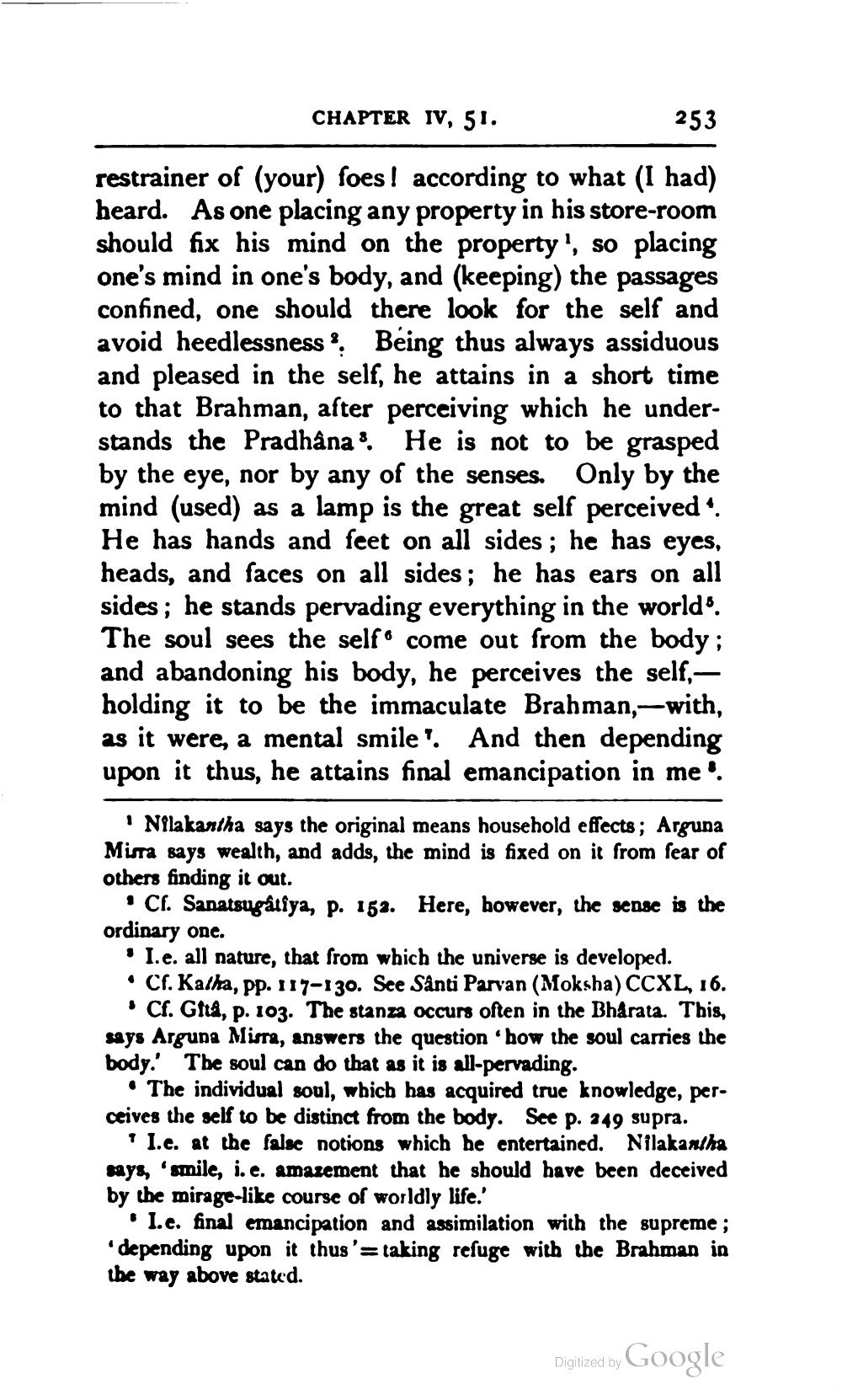________________
CHAPTER IV, 51.
253
restrainer of (your) foes! according to what (I had) heard. As one placing any property in his store-room should fix his mind on the property', so placing one's mind in one's body, and (keeping) the passages confined, one should there look for the self and avoid heedlessness & Being thus always assiduous and pleased in the self, he attains in a short time to that Brahman, after perceiving which he understands the Pradhana :. He is not to be grasped by the eye, nor by any of the senses. Only by the mind (used) as a lamp is the great self perceived. He has hands and feet on all sides; he has eyes, heads, and faces on all sides; he has ears on all sides; he stands pervading everything in the world'. The soul sees the selfo come out from the body; and abandoning his body, he perceives the self, - holding it to be the immaculate Brahman,- with, as it were, a mental smile". And then depending upon it thus, he attains final emancipation in me'.
'Nilakantha says the original means household effects ; Arguna Misra says wealth, and adds, the mind is fixed on it from fear of others finding it out.
• Cl. Sanatsugåtiya, p. 153. Here, however, the sense is the ordinary one.
• I.e. all nature, that from which the universe is developed. • Cf. Katha, pp. 117-130. See Santi Parvan (Moksha) CCXL, 16.
• Cf. Ghå, p. 103. The stanza occurs often in the Bharata. This, says Arguna Misra, answers the question how the soul carries the body.' The soul can do that as it is all-pervading.
• The individual soul, which has acquired true knowledge, perceives the self to be distinct from the body. See p. 249 supra.
' I.e. at the falsc notions which he entertained. Nilakantha mys, smile, i.e. amazement that he should have been deceived by the mirage-like course of worldly life.'
• I.e. final emancipation and assimilation with the supreme ; depending upon it thus'= taking refuge with the Brahman in the way above stated.
Digitized by Google




